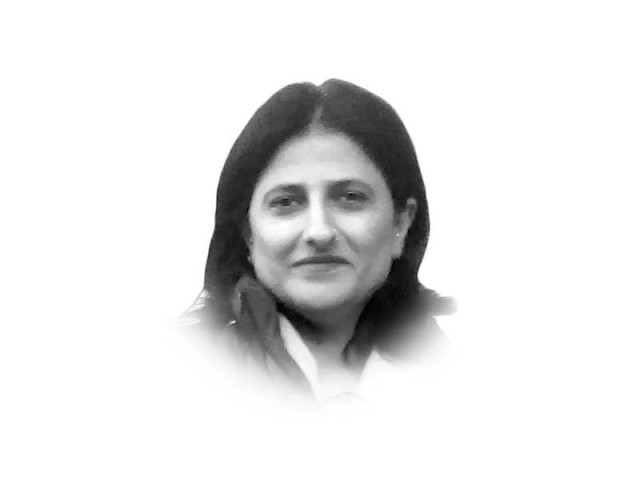Changing ME and Pakistan: opportunities on the horizon
Situation is excellent opportunity for Pakistan to place itself at the diplomatic centre stage of the Middle East

We are at the beginning of the year 2022 and it seems like that ice is breaking in the Middle East and after decade-long tense relations, Middle Eastern economic powers are joining hands again and mitigating their differences.
In the last year, Middle Eastern theatre has changed drastically. In January 2022 we got the news that Turkish President Recep Tayyip Erdogan will visit Saudi Arabia in February 2022. Just a year ago, on January 5, 2021, we witnessed the Emir of Qatar, Sheikh Tamim bin Hamad Al Thani, visiting Saudi Arabia for the Gulf Cooperation Council (GCC) summit followed by the signing of an agreement to restore diplomatic relations between Qatar and the Saudi-led bloc comprising the UAE, Bahrain and Egypt. This change was the end of the five-year long diplomatic deadlock of Qatar.
On November 24, 2021, President Erdogan hosted Abu Dhabi Crown Prince Sheikh Mohammed bin Zayed Al Nahyan in Ankara in what was the latter’s first visit to Turkey after 2012. Diplomatic relations between Turkey and the UAE went through a turbulent patch due to major differences and their contradictory positions over Arab Spring, Muslim Brotherhood, Libyan civil war, Syrian war, and Qatar embargo. Turkey was the only country in the region that stood with Qatar when Saudi Arabia, the UAE, Bahrain, Egypt, the Maldives, Mauritania, Senegal, Djibouti, Comoros, Jordan and Libya severed diplomatic relations with Qatar and blocked its airspace and sea routes in June 2017.
Now Qatar and Saudi Arabia are working again to establish a rail link that would connect the two countries. Last week, Qatari Minister of Transport Jassim Al-Sulaiti and his Saudi counterpart Saleh bin Nasser Al-Jasser held discussions regarding aspects of cooperation in the fields of transportation, civil aviation, ports and railways. Aljazeera reported that the proposed rail link project was expected to be launched back in 2016 before it was abandoned due to the diplomatic crisis between the two states.
I believe that Middle Eastern economic giants now understand that the age of imposing regional hegemonies are a bygone idea because Qatar boosted its economy and diplomatic position when it was physically isolated from neighbouring countries. Turkey despite the horrific Syrian war at its borders has become the hub of information technology and high technological productions while Iran despite sanctions and embargoes not only survived but has become an integral part of Chinese vision in the region. There is no doubt that Middle Eastern wars ruined Syria, Iraq and Libya but someone else out of the Middle East was the beneficiary of these wars while the Middle East got nothing but terrorism, large-scale migrations and asylum-seeking youth.
Pakistan’s foreign policy has always been proactive in the Middle East because situated at the crossroads, Pakistan links South Asia with Central Asia and the Middle East via Iran. Turbulence in the Middle East has never been favorable to Pakistan, therefore it had been trying to bridge Middle Eastern countries by mitigating differences between and among brotherly countries.
Since 2016, Pakistan had been facing critical situations and trying to keep a balance among Qatar, Saudi Arabia, and other GCC countries after Qatar was virtually cut off and isolated by Saudi Arabia. Syrian, Iraqi and Libyan wars turned the situation complex further when Saudi Arabia and Turkey stood against each other, putting Pakistan into a difficult situation as it has good relation with both. Pakistan tried to play its role to neutralise the situation between Iran and Saudi Arabia and between Saudi Arabia and Qatar. Now things are becoming favourable for Pakistan when after a tug of war-like situation, Middle Eastern countries are normalising their relations.
This situation is an excellent opportunity for Pakistan to place itself at the diplomatic centre stage of the Middle East. Pakistan, Iran and Turkey have already initiated a cargo railway project and the first cargo train from Islamabad left the station for Istanbul in December 2021. Shall we not go for developing a workable economic vision pooling human resources offered by Pakistan, Iran, Turkey, Saudi Arabia, UAE, and Qatar for a better future of our generations to come? I think we can do it now.
Published in The Express Tribune, January 13th, 2022.
Like Opinion & Editorial on Facebook, follow @ETOpEd on Twitter to receive all updates on all our daily pieces.














COMMENTS
Comments are moderated and generally will be posted if they are on-topic and not abusive.
For more information, please see our Comments FAQ